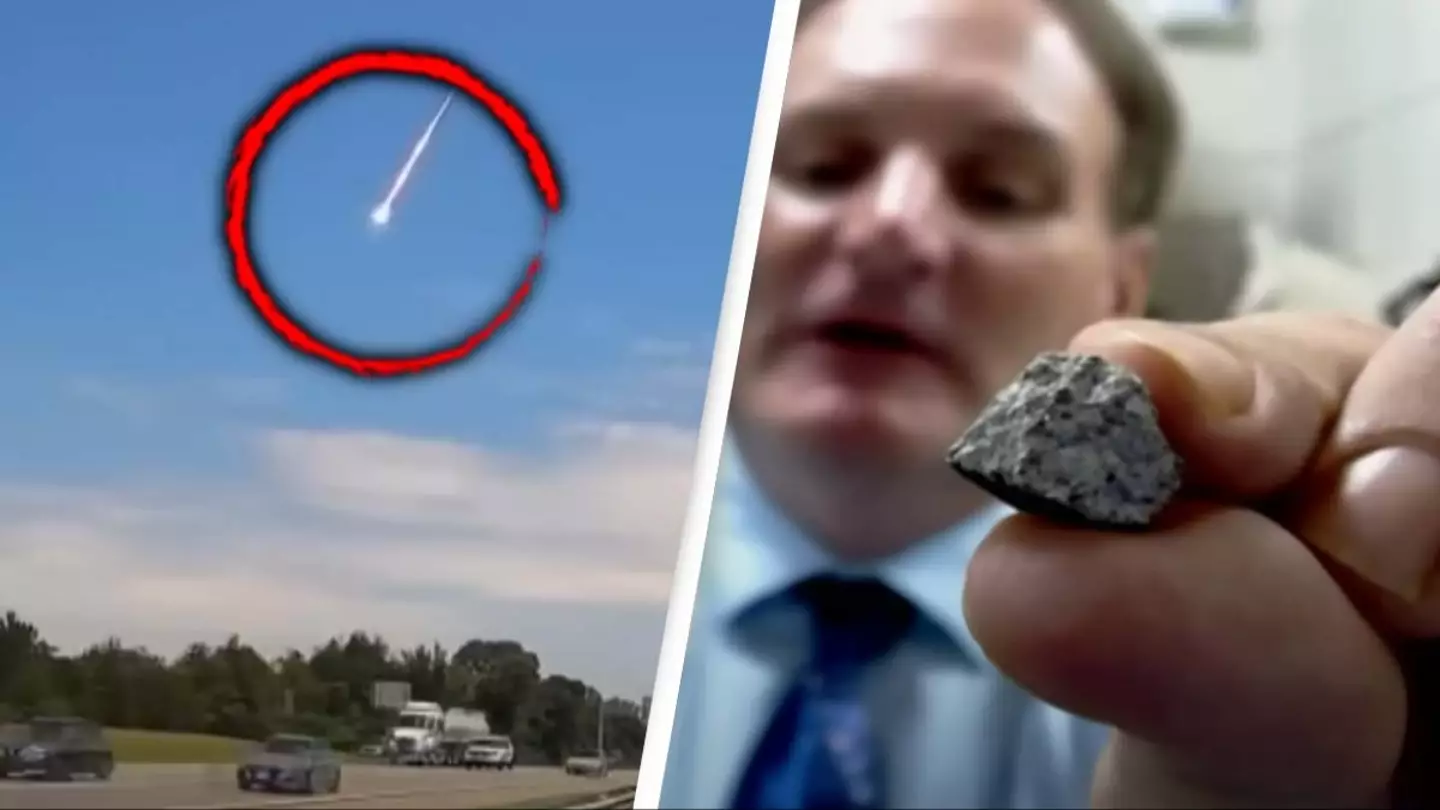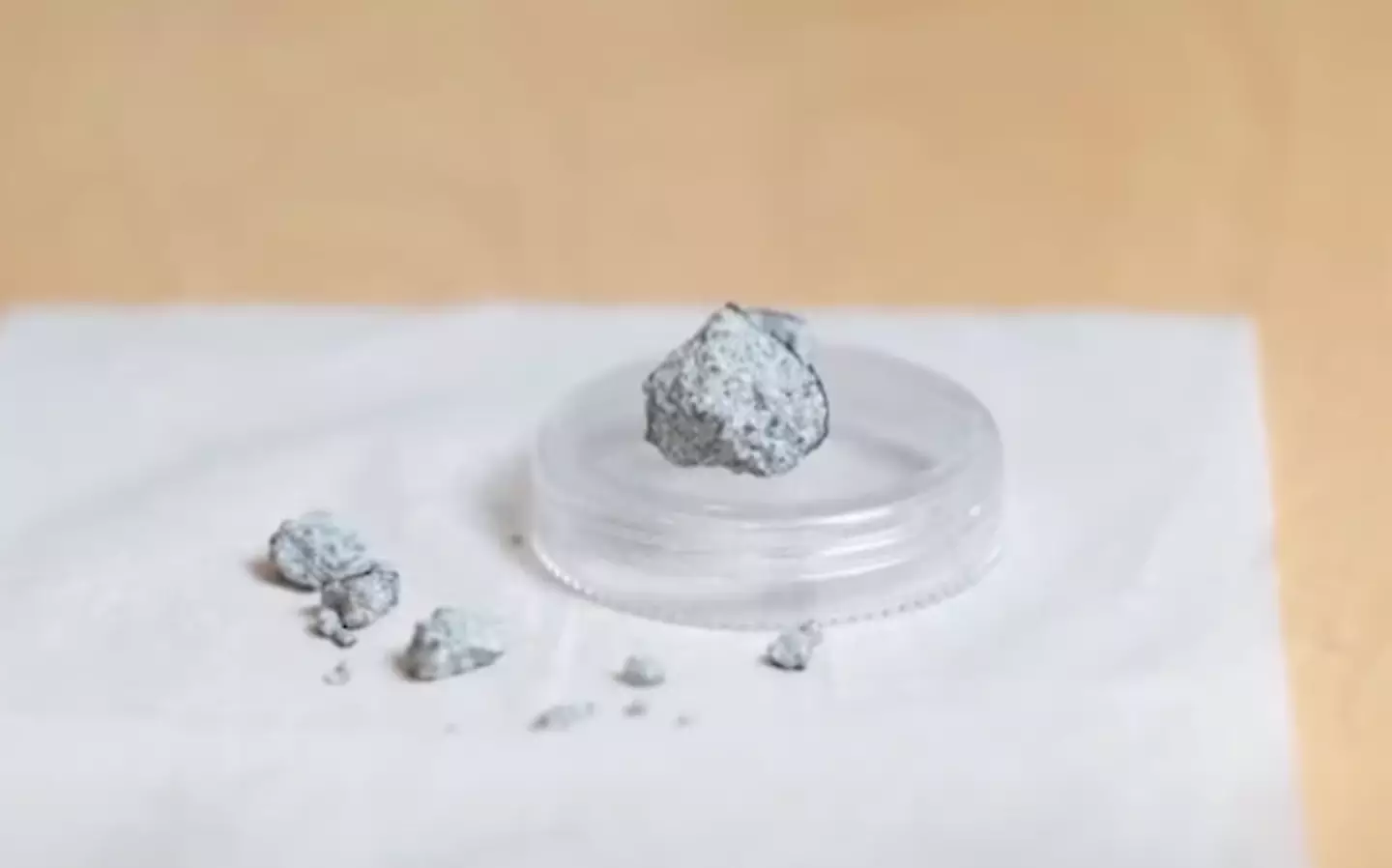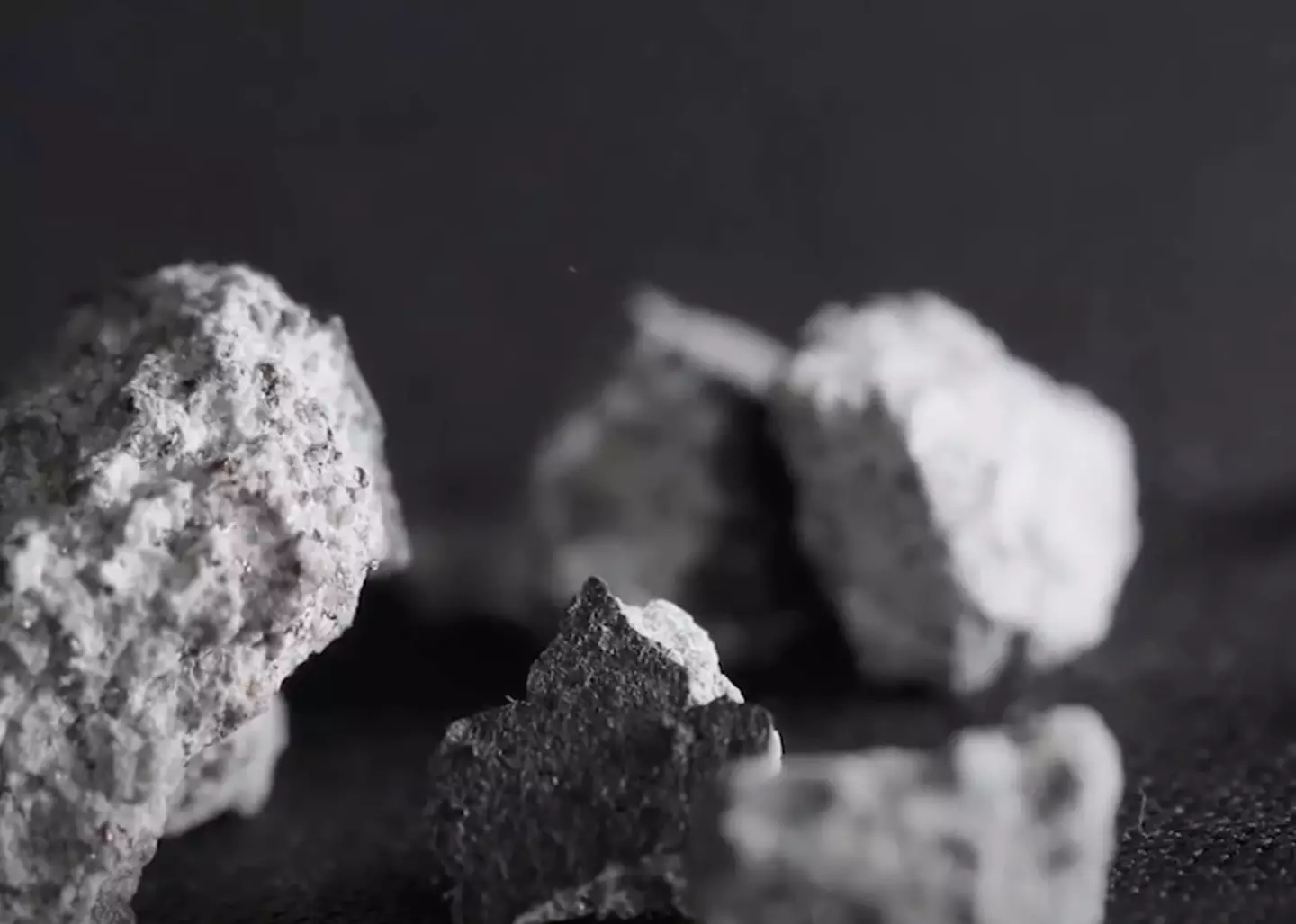
NASA confirmed the space rock was visible in broad daylight before exploding across the skies of Georgia back in June.
Space is full of a manner of objects careening about the place and every so often, one crosses Earth’s path and is visible through the use of proper equipment.
And then again, sometimes these space rocks actually land on planet Earth and explode as they crash land to the ground.
NASA confirmed a meteorite did just that on June 26, striking a home in the state of Georgia.
Advert
But it was when the rock was analyzed that the expert discovered something rather interesting.
The space rock is expected to have formed an estimated 4.56 billion years ago, making it roughly 20 million years older than Earth.
The actual crash landing of the meteorite was spotted by hundreds of residents in the state with some reporting they heard a loud booming noise as the fireball crash landed.

The rock quickly diminished in size as it was burnt up in our atmosphere but still managed to strike and go through a man’s roof in Henry County.
Scott Harris, a geologist at the University of Georgia, spoke about the space rock after multiple fragments were analyzed.
He said: "This particular meteor that entered the atmosphere has a long history before it made it to the ground of McDonough.
“This is something that used to be expected once every few decades and not multiple times within 20 years," Harris said."Modern technology, in addition to an attentive public, is going to help us recover more and more meteorites."
The meteorite is the 27th to have been recovered from Georgia and has been named McDonough meteorite.
Speaking to Inside Edition, planetary geologist R. Scott Harris spoke about the crash landing.

He said: “Someone could have been very seriously hurt.
“The homeowner was actually 14 feet away at a home office desk, had on noise cancelling headset and still heard a very long gunshot and then actually saw little bits of debris bouncing into the room where he was at.”
Harris also noted that he hopes through further investigations into the meteorites speed will help scientists understand the threat of future asteroids.
He added: “One day there will be an opportunity, and we never know when it's going to be, for something large to hit and create a catastrophic situation. If we can guard against that, we want.”